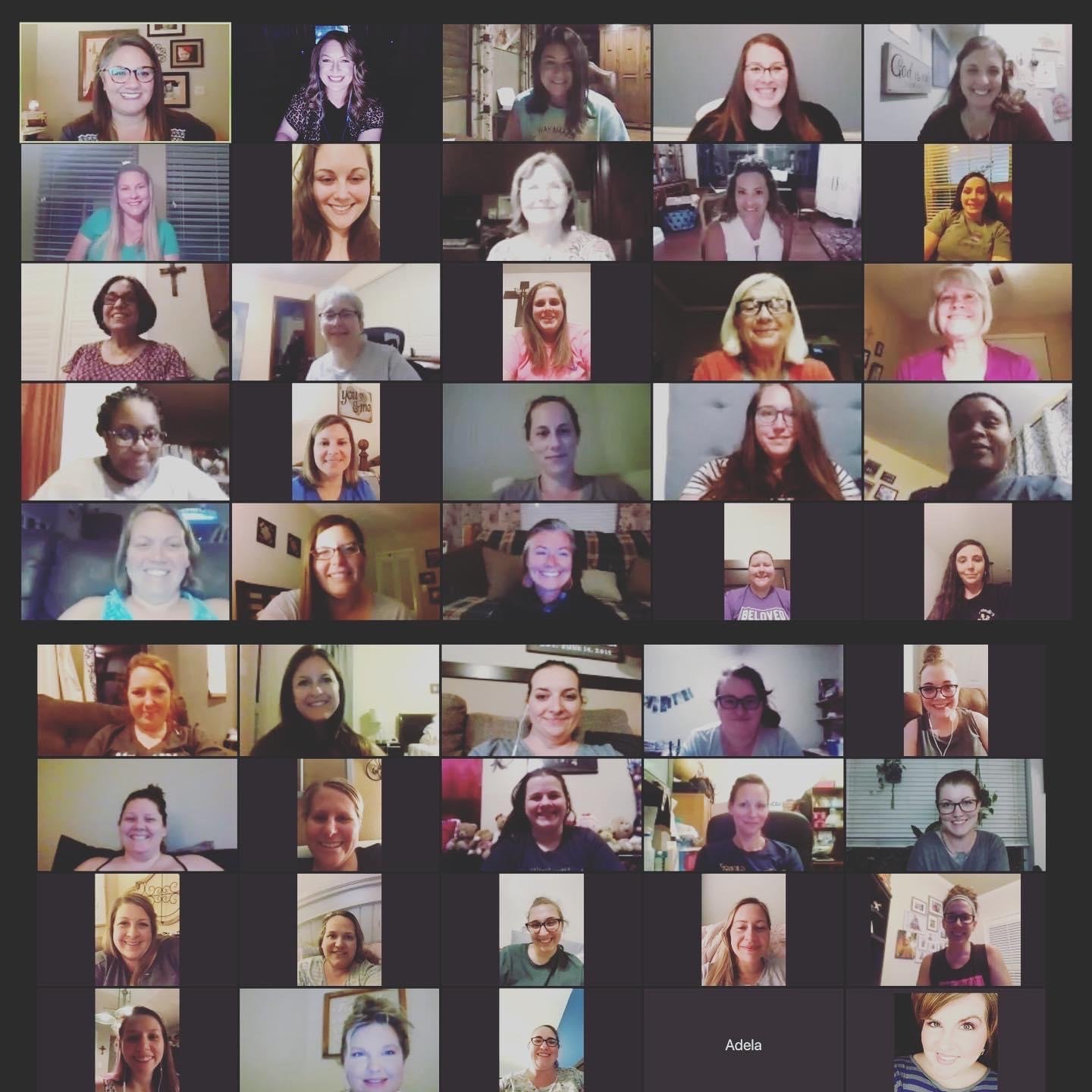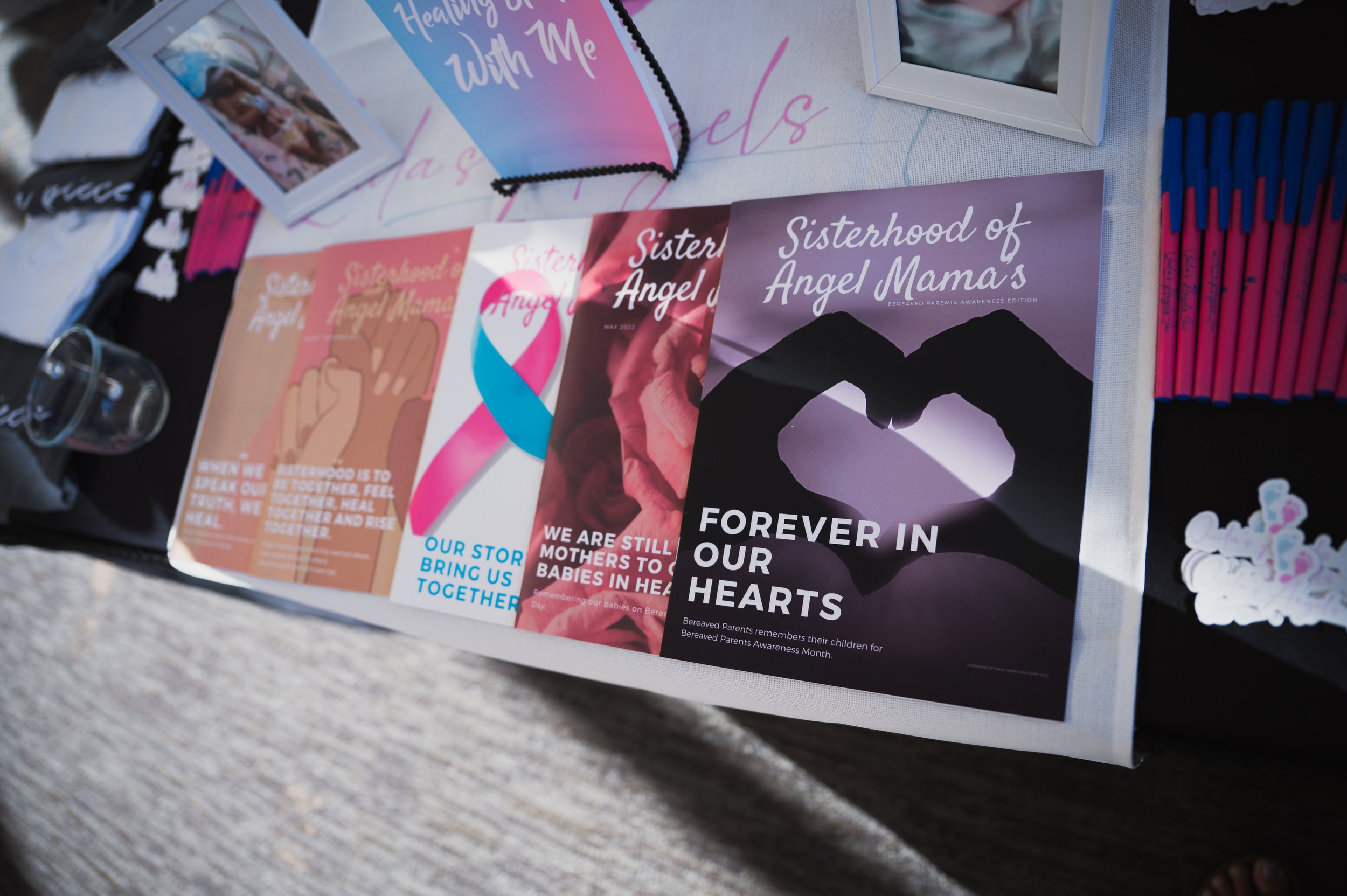I just lost my baby…
Let us start out by saying this- you are loved, and you are not alone. Miscarriage and infant loss can feel isolating and hopeless, and those are completely natural feelings. We want to let you know that you have a community ready to welcome you with open arms waiting to love on you and your baby.
Attend our annual Gathering
We host an annual Gathering of where moms in all stages of their loss journey are welcome to honor our children together. The Gathering is a full-day event where you will be surrounded by a community of moms who GET IT. We are so ready to love on you mama, come and join us.
join Our Social Media
Get your feet wet by joining our private Facebook community! Moms from all over the country who will understand you are waiting to support you.
Connect with a counselor
While finding a community of women who understand the loss of a baby is tremendously helpful, sometimes mothers require the assistance of a professional counselor.
The Sucky Sisterhood Podcast
Our podcast has testimonies from women of all ages and backgrounds about their experience with miscarriage and infant loss.
Attend a Gathering
As fellow survivors, we invite you to join us for powerful speakers, uplifting worship, and a sacred, intimate atmosphere where you are regarded as a truly honored guest.
Organizations
We have compiled a list of supplemental organizations that can help you no matter what stage of your loss journey that you are in now.
Attend Seminar
Attend a seminar series offered each quarter. You will meet other survivors and walk away with empowering steps to help you on your healing journey.
The Things Nobody Talks About
-
A woman can begin to make and leak milk as early as 12 weeks gestation. Therefore, your body will most likely begin to produce milk even after your baby dies in-utero or at birth. Even if you want to try to dry up your milk right away, it is important to learn how to manage your milk supply in the days and weeks following your loss to maintain physical comfort and prevent engorgement.
If you choose to dry up your milk after your loss, you can use a cold compress on your breasts or wear a tight-fitting bra to help relieve discomfort and reduce milk production. You can also express any milk that you produce to relieve engorgement and prevent discomfort.
There are organizations that you can donate your breast milk to as well, which is comforting to some mothers.
It is also important to take care of your emotional well-being during this time, as lactation after a pregnancy loss can be a difficult and emotional experience. Consider reaching out to a support group or talking to a trusted friend or family member for additional support.
For more information, try this link.
-
-Use pads or Depends instead of tampons
-Over-the-counter pain medicine, such as acetaminophen (Tylenol), ibuprofen (Advil, Motrin), or naproxen (Aleve), to ease cramps. Be safe with medicines. Read and follow all instructions on the label.
-Ease soreness with ice compresses
-Ease constipation by drinking lots of fluid and eating high-fiber foods. Ask your doctor or midwife about over-the-counter stool softeners
-Cleanse yourself with a gentle squeeze of warm water from a bottle instead of wiping with toilet paper.
-Take a sitz bath in warm water several times a day.
-
Here are some steps you can take to help you through this process:
-Contact a funeral director: They can help you understand your options for a funeral service and assist you with the arrangements.
-Decide on the type of funeral service you want: There are many options, including a traditional funeral service, a memorial service, or a graveside service. Consider what type of service would be most meaningful for you and your family.
-Consider the location: You can have a funeral service at a funeral home, a church, or another location that is meaningful to you.
-Choose the right people to help: You may want to consider having a friend or family member help with the arrangements, or you may choose to work with a funeral director.
-Plan the service: Think about what you would like to include in the service, such as music, readings, and speeches. You may also want to consider including special items, such as photographs or a special item of clothing.
-Decide on the burial or cremation: You will need to decide whether to bury or cremate your baby. If you choose burial, you will need to arrange for a cemetery plot and headstone.
-Consider memorializing your baby: There are many ways to memorialize your baby, such as planting a tree, donating to a charity, or creating a memorial website or memory book.
-It is important to take things one step at a time and reach out to others for support if you need it. You are not alone, and many resources are available to help you through this difficult time.
-
Women may not realize that they will have a physical recovery process after a pregnancy loss, just as they would after giving birth. Depending on the type and stage of the pregnancy loss, a woman may experience physical symptoms such as bleeding, cramping, or fatigue for several weeks. It is important for women to understand what to expect and to take care of their bodies during this time.
-
Pregnancy loss can put a strain on relationships with partners, family, and friends. Women may feel like they have to protect others from their pain or may feel like others do not understand what they are going through. It is important for women to communicate their feelings and needs with their loved ones, and to seek support from those who can be there for them.
-
Pregnancy loss can have a significant impact on mental health, including depression, anxiety, and post-traumatic stress disorder (PTSD). Women may feel guilty or ashamed for experiencing these feelings, but they are a normal response to loss. It is important for women to seek help if they are struggling with their mental health, and to know that there are resources available to help them cope.
-
Sadly, some women may experience multiple pregnancy losses. While this can be devastating, it is important for women to know that they are not alone and that there are resources available to help them cope and to increase the chances of a successful pregnancy in the future.
It is important for women to have access to information and resources related to pregnancy loss, and for these topics to be discussed openly and without judgment. Women who have experienced pregnancy loss deserve support, compassion, and understanding as they navigate their journey toward healing and hope.







